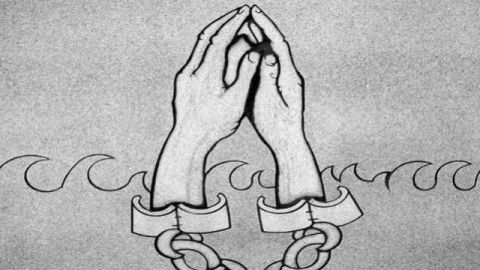Fear vs. Growth
Driven, achievement-oriented people are often particularly cautious about trying something new. At the same time, complacency is a sure-fire recipe for personal and professional atrophy; if we’re not moving forward, we’re regressing.

What’s the Big Idea?
It’s easy to be bold when you’ve got nothing to lose. But reinventing yourself from a position of power takes faith – faith that trying something new won’t result in public humiliation, the downfall of those who depend on you, or the unraveling of everything you’ve worked so hard to achieve. Driven, achievement-oriented people are often particularly uncomfortable with the risk of failure. At the same time, complacency is a sure-fire recipe for personal and professional atrophy; if we’re not moving forward, we’re regressing.
Thomas DeLong, a Harvard Business School Professor of Management and author of Flying Without a Net: Turn Fear of Change into Fuel for Success, explained in a recent Big Think interview that people at all stages of their lives and careers need to take their own development seriously, setting goals, seeking guidance, and taking action to grow in new directions.
Thomas DeLong, a Harvard Business School Professor of Management and author of Flying Without a Net: Turn Fear of Change into Fuel for Success, explained in a recent Big Think interview that people at all stages of their lives and careers need to take their own development seriously, setting goals, seeking guidance, and taking action to grow in new directions.
What’s the Significance?
According to Maslow’s Hierarchy of Needs, a classic psychological framework for human motivation, after our material and social needs are met, humans are driven by the need for self-esteem and self-actualization. Since we spend so much of our lives at work, both of these depend to a great extent on our careers.
Self-esteem can be intrinsically or extrinsically motivated – some are shooting for the big promotion while others prefer the quiet accomplishment of knowing they’ve done their best. Either way, it demands new challenges; few people are energized by the idea of succeeding over and over again at the same rote task.
Self-actualization, Maslow’s highest human purpose of all, means fulfilling our personal potential, something we can only achieve through a lifetime of growth.





